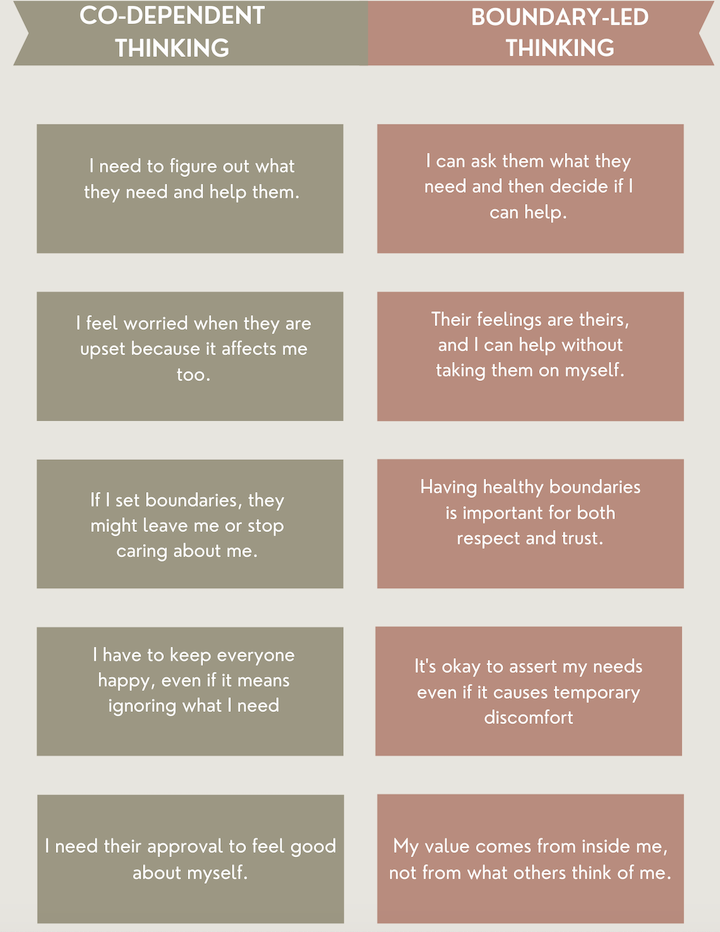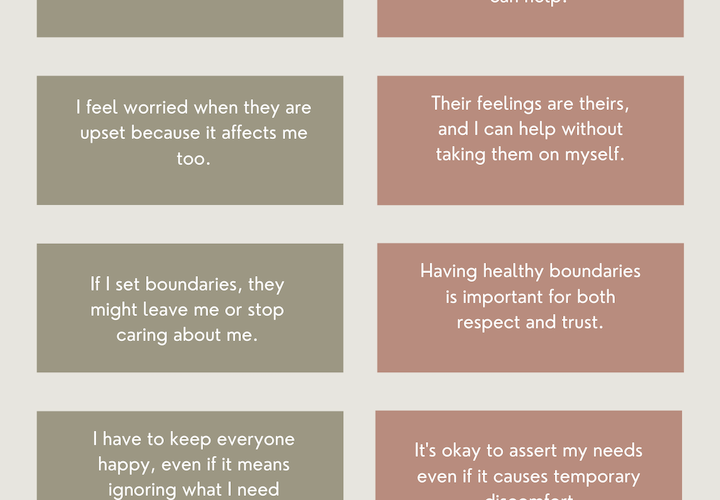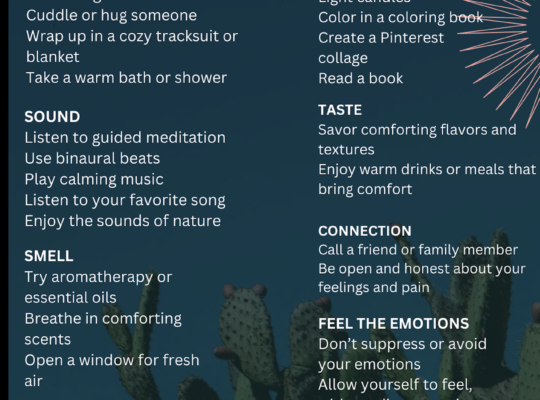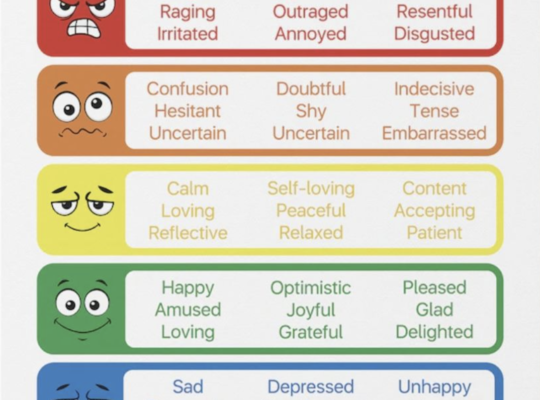
How do our thoughts and the way we think influence our relationships in life?
The way we think and talk to ourselves can guide us toward either co-dependency or boundary-led relationships. With boundary-led thinking, we start prioritizing self-respect and self-worth. However, co-dependent thinking often stems from negative beliefs, like feeling unworthy or believing we must please others to feel loved. This can lead to sacrificing our own needs, moving us away from boundary-led relationships.
In co-dependent relationships, boundaries blur, and both people lose a sense of independence. Past traumas and low self-worth fuel co-dependency, making us seek validation by constantly pleasing others. With boundary-led thinking, we avoid these patterns and focus on maintaining healthy relationships.
We all have internal dialogue, but sometimes it becomes negative without us realizing it. Shifting to a boundary-led mindset means recognizing these negative thoughts and actively replacing them with positive affirmations. Repeating these positive thoughts builds a boundary-led habit.
Ask yourself if your negative thoughts are true. Are they rooted in your beliefs or merely reflections of others’ opinions? Are they helping you grow, or holding you back? Switching to boundary-led thinking involves questioning these thoughts and ensuring they align with who you truly want to be.
A boundary-led mindset includes self-compassion and self-affirmation. By practicing boundary-led thinking, you create healthier connections. Instead of feeling responsible for others’ happiness, boundary-led thoughts encourage individuality and respect. Positive affirmations, self-compassion, and challenging negative self-talk all support boundary-led beliefs, helping you break free from co-dependency and create more fulfilling relationships.
Examples of Healthy Thinking to practise for Boundary-led:
- I’ll take responsibility for my own thoughts, feelings, and actions, and let others do the same for theirs.
- I deserve love, happiness, and success.
- Taking care of myself is healthy, not selfish.
- My needs are important.
- I can handle difficult emotions.
- Feeling angry is okay; it means something needs to be addressed.
- Everyone makes mistakes.
- I accept myself with all my flaws.
- It’s okay to ask for help; I don’t have to do everything alone.
- My way isn’t the only right way.
- It’s okay to say “no.”
- Each person is responsible for their own feelings. I can’t control others’ happiness or unhappiness.
- My self-worth doesn’t rely on what others think of me.
- I value myself and don’t need to prove anything.
- I understand I can’t control everything.
- I can handle whatever comes my way.
- I can’t fix everyone and everything.
- I’ll let others solve their own problems, as this helps them grow and learn.
Which type of thinking do you relate to more? Share your thoughts and experiences below!









startup talky I like the efforts you have put in this, regards for all the great content.
Techno rozen I like the efforts you have put in this, regards for all the great content.
Mygreat learning I appreciate you sharing this blog post. Thanks Again. Cool.
yavşak elektrikçi SEO hizmetleri ile web sitemizin performansı gözle görülür şekilde arttı. http://www.royalelektrik.com/
Tech to Force Good post! We will be linking to this particularly great post on our site. Keep up the great writing
[…] are the invisible lines that define where you end and another person begins. Without boundaries, co-dependency takes over. You might feel uncomfortable saying “no” or feel guilty when you do. […]
[…] Set Boundaries: Saying “no” is hard, but it’s important. Emotional codependency thrives when there are no boundaries. […]
Houzzmagazine For the reason that the admin of this site is working, no uncertainty very quickly it will be renowned, due to its quality contents.
It means a lot to know that the content resonates with you. Feel free to reach out if you have any more thoughts or questions – I’m always happy to chat!
[…] of the first red flags in any relationship is when your boundaries aren’t respected. It could be as simple as constantly texting you when you’re at work or […]